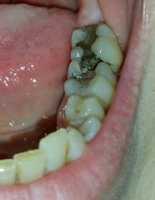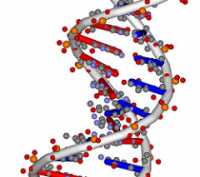Author Interviews, Biomarkers, Genetic Research, Infections, NEJM, UCSF / 13.06.2019
Metagenomic Sequencing Enhanced Diagnosis of Meningitis and Encephalitis Infections
MedicalResearch.com Interview with:
Dr. Charles Chiu, M.D./Ph.D.
Professor, Laboratory Medicine and Medicine / Infectious Diseases
Director, UCSF-Abbott Viral Diagnostics and Discovery Center
Associate Director, UCSF Clinical Microbiology Laboratory
UCSF School of Medicine
MedicalResearch.com: What is the background for this study? Would you describe what is meant by metagenomic sequencing?
Response: Metagenomic next-generation sequencing (mNGS) is the use of technology to generate millions of sequence reads to diagnose infection sin patients by characterizing the full range of potential pathogens (bacteria, viruses, fungi, and parasites) in a single sample. Although shown to be a promising diagnostic tool for infectious diseases in case reports and limited case series (Chiu and Miller Nature Reviews Genetics 20, 341-355 (2019)), to date the “real-life” utility of this approach for patient care has hitherto not been demonstrated. This study is the first prospective, multi-center study of clinical mNGS testing for the diagnosis of neurological infections in acutely ill hospitalized patients presenting with meningitis and/or encephalitis.
(more…)







 Jasleen Grewal, BSc.
Genome Sciences Centre
British Columbia Cancer Research Centre
Vancouver, British Columbia, Canada
MedicalResearch.com: What is the background for this study?
Response: Cancer diagnosis requires manual analysis of tissue appearance, histology, and protein expression. However, there are certain types of cancers, known as cancers of unknown primary, that are difficult to diagnose based purely on their appearance and a small set of proteins. In our precision medicine oncogenomics program, we needed an accurate approach to confirm diagnosis of biopsied samples and determine candidate tumour types for where the primary site of the cancer was uncertain. We developed a machine learning approach, trained on the gene expression data of over 10,688 individual tumours and healthy tissues, that has been able to achieve this task with high accuracy.
Genome sequencing offers a high-resolution view of the biological landscape of cancers. RNA-Seq in particular quantifies how much each gene is expressed in a given sample. In this study, we used the entire transcriptome, spanning 17,688 genes in the human genome, to train a machine learning method for cancer diagnosis. The resultant method, SCOPE, takes in the entire transcriptome and outputs an interpretable confidence score from across a set of 40 different cancer types and 26 healthy tissues.
Jasleen Grewal, BSc.
Genome Sciences Centre
British Columbia Cancer Research Centre
Vancouver, British Columbia, Canada
MedicalResearch.com: What is the background for this study?
Response: Cancer diagnosis requires manual analysis of tissue appearance, histology, and protein expression. However, there are certain types of cancers, known as cancers of unknown primary, that are difficult to diagnose based purely on their appearance and a small set of proteins. In our precision medicine oncogenomics program, we needed an accurate approach to confirm diagnosis of biopsied samples and determine candidate tumour types for where the primary site of the cancer was uncertain. We developed a machine learning approach, trained on the gene expression data of over 10,688 individual tumours and healthy tissues, that has been able to achieve this task with high accuracy.
Genome sequencing offers a high-resolution view of the biological landscape of cancers. RNA-Seq in particular quantifies how much each gene is expressed in a given sample. In this study, we used the entire transcriptome, spanning 17,688 genes in the human genome, to train a machine learning method for cancer diagnosis. The resultant method, SCOPE, takes in the entire transcriptome and outputs an interpretable confidence score from across a set of 40 different cancer types and 26 healthy tissues. 






















